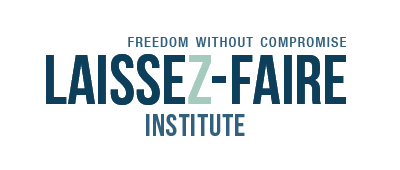A principle in fashion, but to be completely reconsidered
Not a day goes by without the precautionary principle being invoked by the media and by the men of the State, as if our society had somehow just discovered a principle essential to its functioning, applicable to environment as well as to food safety or health, defended by both the right and the left. It is true that at first sight this principle seems quite acceptable, not unlike the practice of a good family head who knows from experience to have a relatively cautious attitude towards potentially risky changes. But taken out of it initial context, the civil society, to become the leitmotif of political society, the precautionary principle is transformed from a display of voluntary wisdom to a deceptive pretext for freedom-threatening regulation.
A new excuse for managers who do not want to be blamed for their mistakes, a Trojan horse for an indefinite extension of the prerogatives of the State, the precautionary principle, in its ordinary sense, is the constitutive principle of a society based on a prevention program that maintains static the existing conditions.Destined to quickly become a general principle of law, the precautionary principle entered international law for the first time on the occasion of the ineffable Rio Convention on environment of 1992. Three years later, in February 1995, the Barnier law introduced it into French law, defining it as: "The principle according to which the absence of certainty, taking into account the current scientific and technical knowledge, must not delay the adoption of effective and proportionate measures which, at an economically acceptable cost, intend to prevent the risk of serious and irreversible damage to the environment".
Today, the report handed to the Prime Minister by Philippe Kourilsky and Geneviève Vinyz recommends to "impose it to all decision makers, to anyone who has the power to initiate an activity that could present a risk to others". European Union law is not far behind : those past three years, an avalanche of texts and decisions have made it into a principle that governs the policies of the European Union (Article 130 of the Maastricht Treaty, recommendations of the Directorate-General of 1998, decisions of the European Court of Justice of May 1998 and July 1998, ordnances of June 30, 1999, Commission Communication of February 2, 2000, judgments of the European Court of Justice of March 21, 2000, etc.). Do our legislators know that the precautionary principle has its intellectual origins in the work of Hans Jonas, and in particular his /The principle of responsibility/? This German philosopher, apologist of deep ecology, proposes a self-styled ethics for the technological civilization based on a rejection of humanism (identical to that of his mentor Heidegger) and the emergence of an obscurantist mysticism founded on nature. In the name of the irreversibility of the human actions and the dangers of scientific and technical progress Jonas wants to entrust to a group of men of the state, believed to be the only ones capable of bearing ethical responsibility for future generations, the direction of the planet. With the slogan: "Limitation rather than growth", this "techno-ethical treatiste", intolerant, reactionary and technophobe is the foundation of the precautionary principle in its current sense, as an utopia authorizing experimentation only when there is absolutely no risk of error (Darwin would be turning over in his grave).
Jonas distorts the true meaning of responsibility, which in fact rests upon individual freedom of action. His principle is an anti-concept, which will turn against those who wish to put it in practice. In the name of this principle, to guard against fire, building contractors were forced to use... asbestos, up until, in the name of the same principle, it became mandatory to remove all asbestos.
In the name of this principle, to guard against the "mad cow" disease, the importation of British beef was prohibitied, up until the moment when, in the name of the same principle, the rest of Europe rejected French beef.
A false concept, the precautionary principle creates real problems. It extends the power of control of government administration and gives it, as well as to judges, a power of discretionary decision, given that the assessment of the risks remains arbitrary. This sovereign, "absolutist" principle stifles innovation, hinders the development of trade with foreign countries, does not take into account the risks of banning a product, gives life to a stagnant, Malthusian society, subjected to the psychosis of fear.
Exaggerated? In Le Monde of November 8, 2000, Bertrand Poirot-Delpech, who certainly cannot be accused of ultra-liberalism, in an article entitled The risks of precaution, writes: "The wave of prudence that has fallen (more less ever since the Amoco-Cadiz , AIDS, the contaminated blood scandal and the "mad cow" disease) upon maritime law, healthcare law, and food safety laws, brings with it a pack of uncertainties, generalizations, paperwork, failures, unemployment, loopholes and attacks on our ancestral comfort, not to mention the culpabilisations and repentances.

